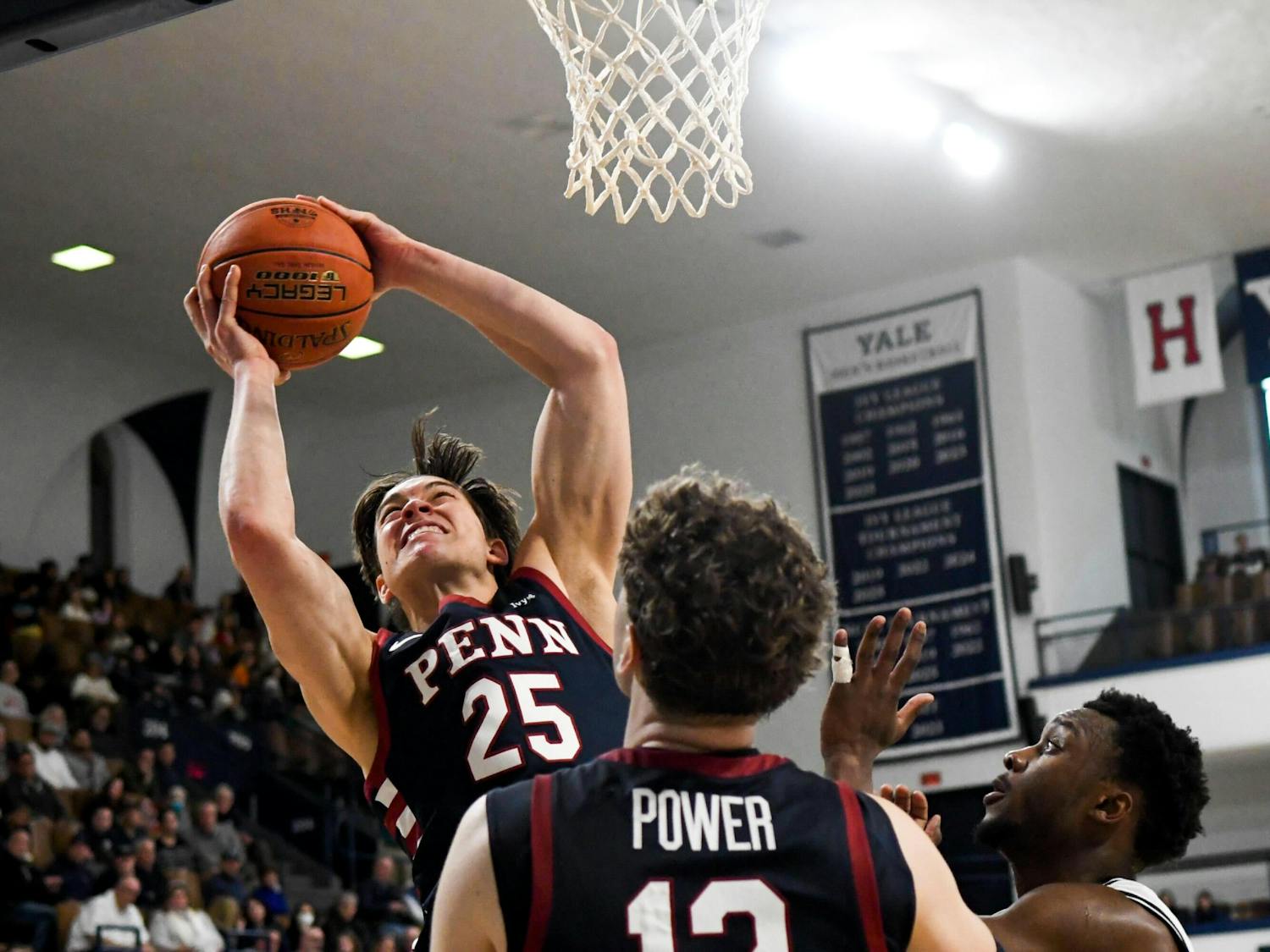One year ago, Cornell traveled to Philadelphia, and, in front of a moderately packed Franklin Field Homecoming crowd made up of mostly alumni, the Big Red shocked Penn, 15-12, winning the Trustees' Cup for the first time since 2013. On Saturday, the Quakers returned to Ithaca (N.Y.) for the first time since 2018 and completed their odyssey for revenge.
While there are still two games left in the season, against arguably its toughest opponents in the conference — Harvard and Princeton — it is hard not to take a look back and admire how far Penn football has come from last season. A year ago, the Cornell loss dropped the Quakers to a miserable 2-7 record, and many fans and pundits were clamoring for changes on the offense and coaching staff, as their once proud program now stood in the dregs of the Ancient Eight. After Saturday’s victory, the Quakers are now 7-1 and, with a win against Harvard next Saturday at home, can set up a winner-take-all matchup with longtime rival Princeton for their first Ivy League title since 2016.
All throughout last season, coach Ray Priore would stress that the team was young and lacked experience due to the 2020 season being canceled due to COVID-19. This season has been proof that we should’ve all taken him at his word then.
A defense that looked porous at times last year and struggled with communication has now become the backbone of this team. Players such as junior defensive lineman Joey Slackman, senior linebacker Garrett Morris and junior free safety Logan Nash stepped up Saturday when the team needed it and have all grown tremendously since 2021.
An offense that was unreliable last year has now stabilized and become a well-balanced attack. Senior running backs Trey Flowers and Jonathan Mulatu have filled big shoes in the backfield left behind after Isiah Malcome’s departure, and unknown wideouts such as junior Sterling Stokes, sophomore Julien Stokes, and junior Josh Casilli have risen up the depth chart to become go-to guys for sophomore quarterback Aidan Sayin. And it has been Sayin’s mostly steady hand as the Quakers' signal-caller that has sparked Priore and co. to be much more aggressive on the field with their play-calling and going for it on fourth down (even if Saturday was an exception).
In college football, anybody can beat anybody on any given Saturday. Take Penn’s opponent last week in its first defeat — Brown. The Quakers fell to the Bears, 34-31, but this week Brown got demolished, 69-17, by Yale, a team that Penn beat just two weeks ago. That’s why I believe that Penn’s three-point loss last week was just a bump in the road rather than a sign of things to come.
The win against Cornell in college football's fifth-oldest rivalry was more dominant than the final score suggests. Penn lost the time of possession battle by 12 minutes and ran only 55 plays to the Big Red’s 90, but that was likely due to its quick-strike offense and lack of aggression in essentially garbage time after establishing a 28-7 lead in the third quarter.
Cornell’s defense was ranked seventh in the Ivy League heading into the matchup, and Penn chose to do its damage on the ground, with Flowers rushing for 124 yards and two scores in his first game back from injury after four weeks. Sayin had a season-low of 18 pass attempts and eight completions but was able to make the most of them, finding Sterling Stokes and Casilli for deep-ball touchdowns of 47 and 38 yards apiece.
RELATED:
Penn football bounces back in crucial 28-21 victory at Cornell
The legacies of leadership and unspoken synergies of Penn football linebackers
On the other side of the ball, despite being on the field for 36 minutes and playing 90 snaps for the second week in a row, the Quaker defense returned to form facing a dual-threat quarterback and heavy play-action passing game that they’ve seen and handled before.
Outside of an busted coverage that resulted in a 31-yard touchdown pass, or a 53-yard run by Cornell sophomore quarterback Jameson Wang, Penn played mostly shut-down defense, led by Morris (10 tackles and an interception), senior linebacker Jonathan Melvin (seven tackles, 3.5 for loss), and Slackman (eight tackles and a sack) up front. Junior cornerback Shiloh Means also corralled a huge pick late in the fourth quarter to effectively ice the game, and senior defensive backs Kendren Smith and Jaden Key consistently made stops in the secondary to limit Cornell’s group of speedy wide receivers. The Quakers also held Cornell to a lackluster 7-23 on third down, and 3-7 on fourth down.
This is the Penn defense that we are accustomed to seeing this season, not the one in the first half last week, and the Red and Blue are fortunate to have them reappear as they prepare for their toughest two-game stretch of the season.
Next Saturday, Penn will face Harvard at Franklin Field, and the outcome of the game will determine its Ivy League title hopes this season, barring Princeton doesn’t lose to Yale in New Haven that day. Not many people, myself included, expected this team to have a legitimate chance to win the League this season, considering the abysmal performances in 2021.
To the students, I hope you will come out to support the Quakers in person for one last time this year. At the moment, there are no planned protests to disrupt the event. Many of us have been lamenting the fact that we don’t go to a “football school,” as some of our friends may, but we have a chance to show up on Nov. 12 at 1:00 p.m. to potentially watch the Quakers return to Ivy League glory. That is an experience you don’t want to miss out on.
EASHWAR KANTEMNENI is a Deputy Sports Editor for The Daily Pennsylvanian and is a College junior from Cincinnati studying neuroscience. He can be reached at kantemneni@thedp.com.









